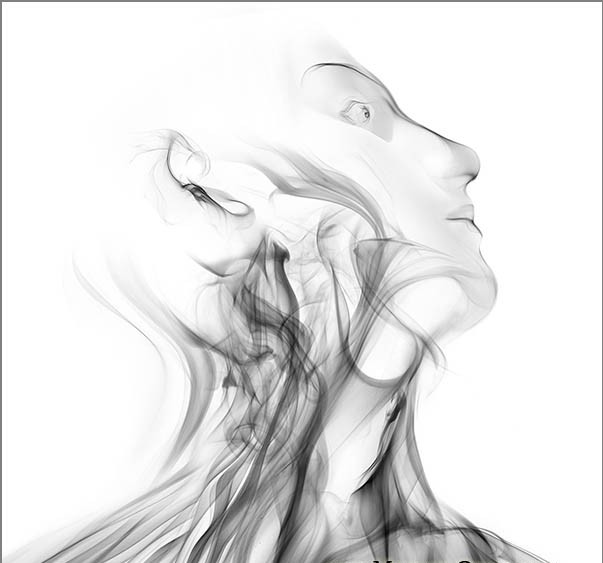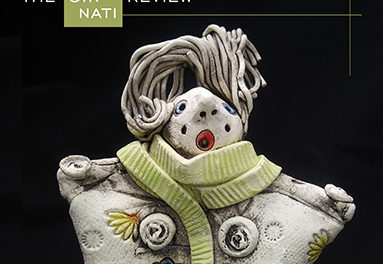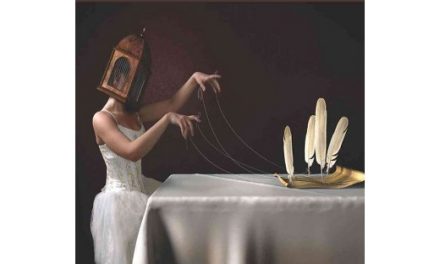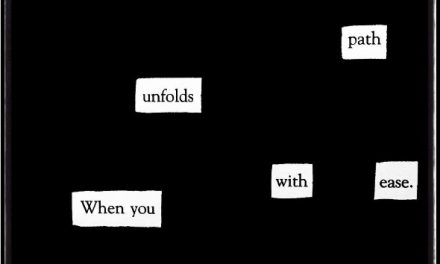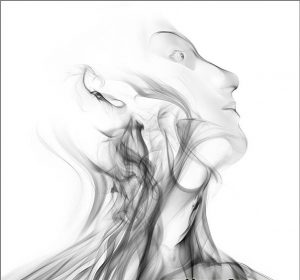 It is an accepted paradox that the human condition is often best explored by stepping outside of our skins, and CR authors know this. Issue 12.2 is full of shape-shifting figures and warped shadows. Some of them are mythical, like Donika Ross Kelly’s men-as-trees; others are whimsical, like Leslie Entsminger’s late-wife-as-toaster or George David Clark’s lion-wearing circus performer; still others are dark, like Michael Byers’s cheating-wife-as-hallucination, Joshua Coben’s father-as-locked-door, or Nicholas Montemarano’s sex-addict-as-vampire. In the excerpts below, authors convey authentic emotional and psychological experiences by reimagining their characters’ everyday forms and realities.
It is an accepted paradox that the human condition is often best explored by stepping outside of our skins, and CR authors know this. Issue 12.2 is full of shape-shifting figures and warped shadows. Some of them are mythical, like Donika Ross Kelly’s men-as-trees; others are whimsical, like Leslie Entsminger’s late-wife-as-toaster or George David Clark’s lion-wearing circus performer; still others are dark, like Michael Byers’s cheating-wife-as-hallucination, Joshua Coben’s father-as-locked-door, or Nicholas Montemarano’s sex-addict-as-vampire. In the excerpts below, authors convey authentic emotional and psychological experiences by reimagining their characters’ everyday forms and realities.
This the season men were turned to trees—
the formula simpler than we initially imagined.
Assume, first, that man and tree were made;
the cypress, the laurel, a spurned god to watch:
[from Donika Ross Kelly’s “Acheron”]
“Mr. Whithers? I have your pamphlets right here! So exciting that your wife has come back. Did you know it’s very rare for a prepurchased haunting to occur this late in a death? It does happen, though I think your wife might have set a record—the whole church is aflutter!” Tammy clapped her fingertips with fervor. She then opened the folder and commenced pulling out colorful brochures. “This first one,” she held up a pamphlet that had a photo of a woman and man gazing lovingly at the front of the church, “is for the newly haunted. It explains the terms and what you can and cannot do.”
“Cannot do?”
[from Leslie Entsminger’s “The Brief Second Life of Winston Whithers’s Wife”]
My shirt is the lion inside out, his canines for the cufflinks.
When I’ve vacuum-sealed the acrobats inside their leotards,
I use the high wire to tether the tent stakes.
As sunrise nears, I wash my face in a funhouse mirror
before packing the glass in my briefcase with everything else.
[from George David Clark’s “Traveling Circus”]
It either was Brigid or it wasn’t; he could not decide. It had been so long since he had heard anything like these noises from his wife, these gasps and cries.
No, it was not her.
But then he wasn’t so sure, and then it began to seem that yes, this was Brigid. This was. Now the bedframe began to squeak violently, and he heard only male groaning, the thrusting power of a huge, heavy man. Gasping, Richard swung his feet over the edge of the bed. He couldn’t stand, couldn’t bring together the muscles that would allow him to rise. He lowered himself to the floor and crawled to the head of the stairs. A bright jewel of fire hung in his gut, suspended from his spine by a thread.
[from Michael Byers’s “Stone”]
The father is a dark door
the son may lean against
to listen for the locked room
of himself, his next life.
[from Joshua Coben’s “Antechamber”]
You slept with the head of your bed beside the attic door, and you imagined every night that there was a vampire up there. A vampire was the second most terrifying thing you could imagine because it could turn you into something you weren’t—a monster ruled by a hunger that would never go away. Yet some part of you secretly wanted to be a vampire, because that would mean you’d never die, and death was the most terrifying thing. You grew up in Queens, in a neighborhood with more dead than living, a cemetery behind your house. A vampire’s immortality, as you saw it, was its greatest power, but almost as great was a vampire’s ability to enslave people, to look into their eyes and make them do anything.
[from Nicholas Monetmarano’s “Limerence”]

